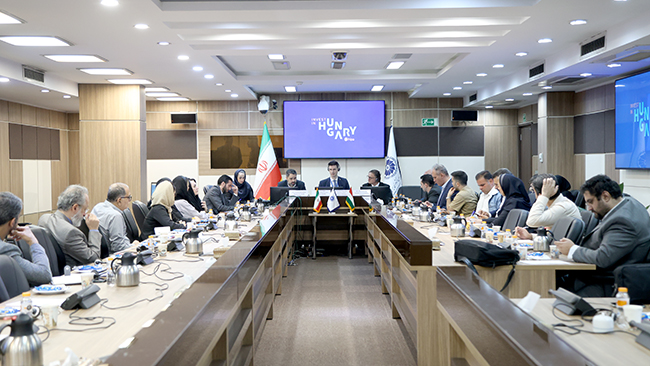Hamed Asgari, the director of the international affairs of Iran Chamber of Commerce, Industries, Mines, and Agriculture (ICCIMA) has announced at a recent meeting on trade opportunities between Iran and Hungary that specialized task forces should be formed to address ongoing commercial challenges.
"The trade balance between the two countries is not satisfactory, with Iran exporting only $6-10 million worth of goods to Hungary, while imports from Hungary amount to around $30 million," Asgari stated.
He noted that sanctions have significantly impacted trade levels, adding that Iran and Hungary could explore alternative trade routes and mechanisms to mitigate the effects of these sanctions. Asgari suggested forming specialized working groups that include representatives from both nations' chambers of commerce to devise practical solutions. “These groups will allow companies from each country to work together more effectively and find concrete resolutions,” he said.
Asgari emphasized that diversifying the trade portfolio to reduce dependency on sanctioned goods is essential, suggesting sectors like agriculture, technology, and pharmaceuticals as potential areas for bilateral cooperation.
Iranian Ambassador to Hungary, Morteza Moradian, supported the idea, stating that reducing bureaucratic hurdles and enhancing business community connections on both sides is crucial. Additionally, Robert Nemeth, a commercial attaché at the Hungarian Embassy, identified sectors like automotive, petrochemicals, renewable energy, refinery, agriculture, pharmaceutical, food, and water treatment as promising for investment.
Iran's Commercial Attaché in Hungary, Hossein Argi, cited logistical issues as a primary challenge in trade relations. He highlighted the role of the Ankara-Budapest railway which he said could reduce shipment costs from Iran to Hungary and facilitate cooperation in non-sanctioned sectors such as water management, agriculture, pharmaceuticals, food, and medical services.
